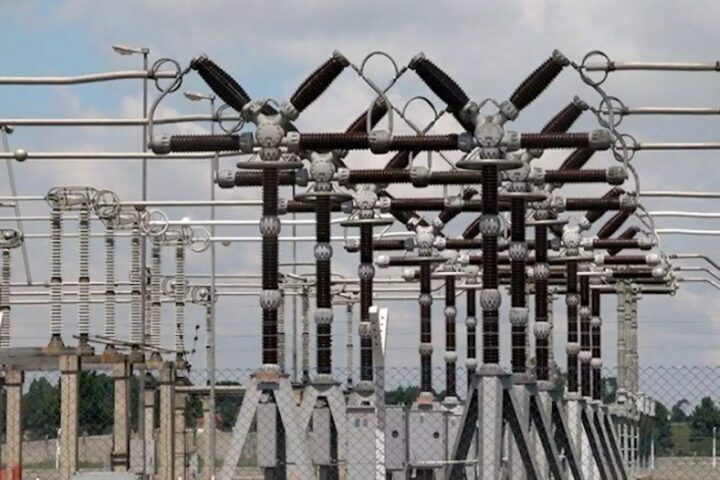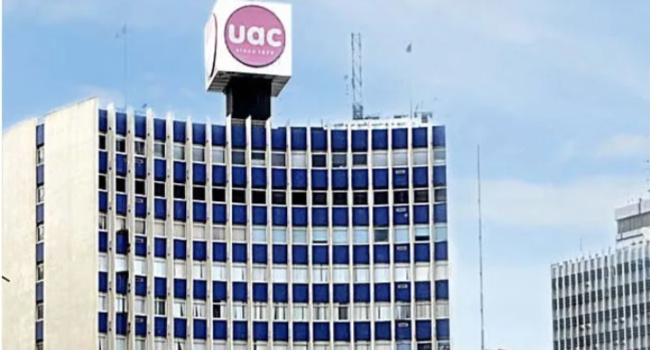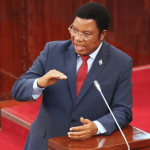Nigeria Introduces Naira-for-Crude Policy
Nigeria has long been a major player in the global oil market, exporting its crude oil in exchange for US dollars, the dominant currency in international trade. This practice, while in line with global norms, has led to heavy reliance on the dollar, leaving Nigeria vulnerable to fluctuations in the dollar’s value. However, a new policy under President Bola Tinubu, known as the Naira-for-Crude policy, seeks to change this.
The Naira-for-Crude policy mandates that Nigeria’s crude oil be sold in naira, rather than the dollar, to reduce Nigeria’s dependence on foreign currencies. Aliko Dangote, whose Dangote Refinery is a major player in the oil industry, has been at the centre of this shift. He explained that the policy emerged after a dispute with the Nigerian National Petroleum Corporation Limited (NNPCL) over the currency used in their transactions.
Join our WhatsApp ChannelDangote refused to buy crude in dollars, citing Nigeria’s laws that prohibit domestic transactions in foreign currency. This led to a feud with the NNPCL that President Tinubu addressed by implementing the Naira-for-Crude policy.
“The Naira-for-Crude policy will reduce the demand for US dollars by 40 per cent and bring much-needed stability to the naira,” Dangote said during an interview.
Why the Naira-for-Crude Policy?
Nigeria, like many countries, has relied on the US dollar for international trade, especially for oil exports, which constitute a significant portion of the country’s foreign exchange earnings.
According to the International Monetary Fund (IMF), the dollar accounts for 59% of global foreign exchange reserves and nearly 88% of all foreign exchange transactions as of 2023. This dollar dominance has cemented the currency’s role in global trade, but it has also exposed countries like Nigeria to economic vulnerabilities.
One of the key reasons for introducing the Naira-for-Crude policy is to reduce this vulnerability. The value of Nigeria’s oil revenue, and by extension its entire economy, has been directly affected by fluctuations in the dollar. A strong dollar benefits Nigeria when crude oil prices are high, but when the dollar weakens, Nigeria’s oil revenue declines, leading to economic instability.
The Naira-for-Crude policy could potentially shield Nigeria from such fluctuations. By demanding payment for oil in naira, Nigeria aims to strengthen its local currency and promote its use both domestically and internationally. President Tinubu believes this move will enhance Nigeria’s economic sovereignty and protect it from external currency systems that can destabilize the economy.
READ ALSO: Black Market Dollar (USD) To Naira (NGN) Exchange Rate Today, 15th September 2024
Impact on Nigeria’s Economy
The Naira-for-Crude policy could have several profound effects on the Nigerian economy. The Central Bank of Nigeria (CBN) recently revealed that Nigeria’s foreign reserves were around $33 billion in mid-2024, with the bulk held in US dollars. In contrast, the naira continues to face significant pressure in the parallel market, where it trades at approximately N1,660 to $1.
A shift to naira-based transactions could alleviate some of this pressure. “If we can stabilise the naira by increasing demand through oil transactions, we will see an improvement in the exchange rate,” Dangote remarked, noting that the policy is designed to promote a more balanced foreign exchange reserve.
This could also have a ripple effect on other sectors of the economy. For example, as more oil transactions are conducted in naira, there will be greater demand for the currency, which could lead to an appreciation in its value. This, in turn, could reduce inflation and improve the purchasing power of Nigerian citizens.
Challenges in Implementing the Naira-for-Crude Policy
However, implementing the Naira-for-Crude policy is not without challenges. The naira has been volatile in recent years, and there is concern that this instability could complicate oil transactions. International buyers, who are accustomed to dealing in dollars, may be hesitant to switch to naira, especially if they view the currency as unreliable.
But experts believe these challenges can be overcome with the right economic reforms. “Strengthening the naira’s value involves not just policy changes but also improvements in fiscal discipline, monetary policies, and overall economic governance,” an economist from Lagos Business School commented.
President Tinubu has acknowledged these concerns and is pushing for comprehensive economic reforms to accompany the Naira-for-Crude policy. “The policy is just one step in a broader strategy to stabilize our economy. We must also focus on fiscal discipline and building investor confidence,” the president stated in a recent address.
Benefits Beyond the Oil Sector
Beyond its direct impact on the oil sector, the Naira-for-Crude policy could also promote the use of the naira in other sectors of the economy. By increasing the demand for naira in international transactions, the policy could lead to greater stability in the financial system and attract foreign investors who are willing to transact in naira.
“If the naira becomes a more widely accepted currency, it will encourage foreign investors to engage with our economy on our terms,” said a representative from the Nigerian Economic Summit Group. “This will boost Nigeria’s revenue and help create a more robust domestic financial system.”
The policy could also improve data collection on fuel consumption within Nigeria. With oil transactions conducted in naira, the government would have a clearer picture of national fuel consumption, allowing for better planning and resource allocation.
Strengthening Nigeria’s Economic Sovereignty
While the Naira-for-Crude policy is still in its early stages, its potential impact on Nigeria’s economy is significant. By shifting oil transactions from dollar to naira, Nigeria could enhance its economic sovereignty, stabilise the naira, and reduce its dependence on external currency systems.
President Tinubu has expressed his confidence in the policy, stating, “This initiative is a bold step towards building a self-reliant Nigerian economy. It will not be easy, but with the right reforms and support, it can become a game-changer.”
The Naira-for-Crude policy represents a significant shift in Nigeria’s approach to its economy. While challenges remain, the potential benefits of strengthening the naira and reducing reliance on the dollar could pave the way for a more stable and prosperous future for Nigeria.
Emmanuel Ochayi is a journalist. He is a graduate of the University of Lagos, School of first choice and the nations pride. Emmanuel is keen on exploring writing angles in different areas, including Business, climate change, politics, Education, and others.
- Emmanuel Ochayihttps://www.primebusiness.africa/author/ochayi/
- Emmanuel Ochayihttps://www.primebusiness.africa/author/ochayi/
- Emmanuel Ochayihttps://www.primebusiness.africa/author/ochayi/
- Emmanuel Ochayihttps://www.primebusiness.africa/author/ochayi/


















Follow Us